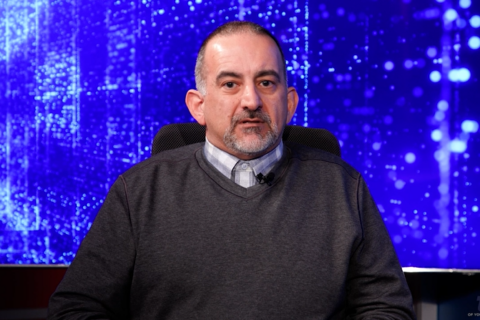This content is sponsored by Verizon Frontline.
Two decades after 19 hijackers slipped into the country, plotted, trained for and executed the worst terror attack ever on U.S. soil, former police and fire officials look back at how emergency responses have improved.
Former D.C. Police Chief Charles Ramsey said in an interview, the inability to communicate during the September 11, 2001 attack was exposed almost immediately.
“The police department and our own fire department were on different radio frequencies. That hadn’t been a huge problem in the past, but it certainly was on 9/11. There was a lot of chaos.”
Just across the Potomac River, American Airlines Flight 77 had crashed into the Pentagon, killing 184.
Arlington County Fire Chief Ed Plaugher, now retired, said he arrived there to find a very challenging situation unfolding. “The ability to get reports from the units that were there was next to impossible. Interoperability was a huge issue.”
Plaugher, who participated in a joint interview with Ramsey said, “We actually used some runners to get information as to the status of various units. The effectiveness of the units is hampered when you don’t have effective communications. It just makes life truly, truly difficult.”
Another shortcoming, revealed that day, was the longstanding lack of coordination between federal, state and local authorities. Plaugher was already aware of and working to counteract it.
He said, “Building relationships is key. Federal, state and local relationships need to occur prior to an incident. And on 9/11 we worked as a cohesive unit. We had drilled mightily with the personnel at the Pentagon. We had actually conducted drills on the reservation at the Pentagon prior to 9/11.”
From a policing perspective, Ramsey said, “one of the benefits that came as a result of 9/11 and knowing that attacks like that could happen in our own homeland was greatly enhanced cooperation between local, state and federal agencies. There’s no question about that.”
Both Ramsey and Plaugher agreed, while federal, state and local cooperation has improved immensely, interoperability still faces a key challenge –communications between networks.
You can listen to the full interview below as Plaugher and Ramsey discuss lessons learned from 9/11, steps to put those lessons into practice and addressing future challenges.
Verizon Frontline is the advanced network and technology for first responders. For nearly 30 years, they have partnered with the public safety community, delivering critical response resources and reliable network connectivity. Their products and services are built right to meet the unique requirements of the work you do every day on the front lines. To learn more visit verizon.com/frontline.







